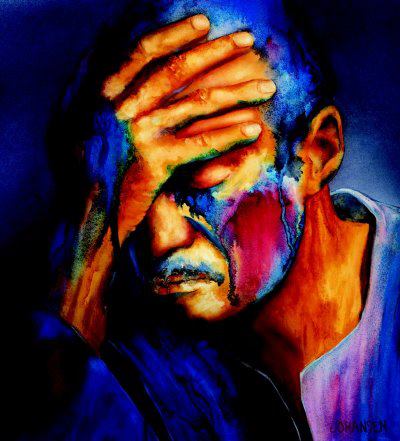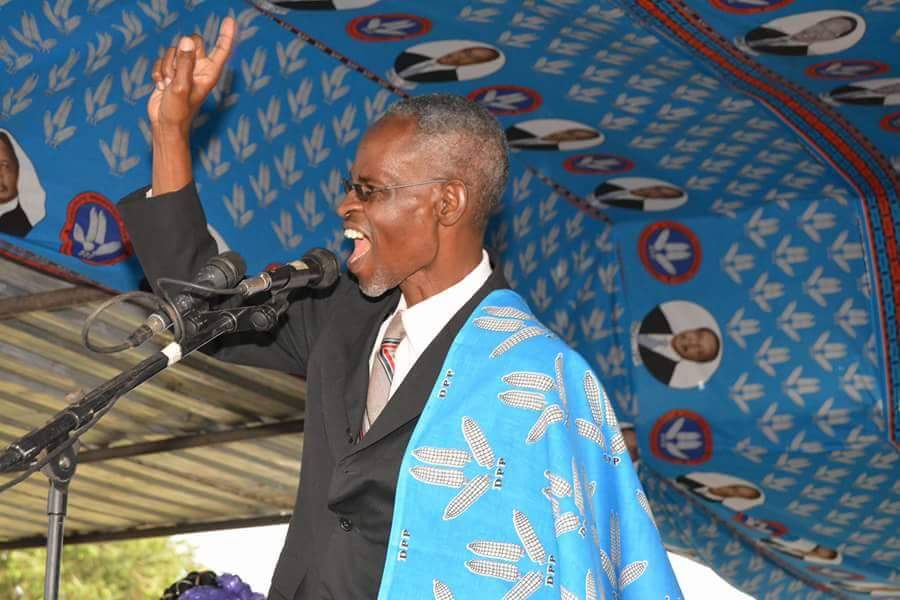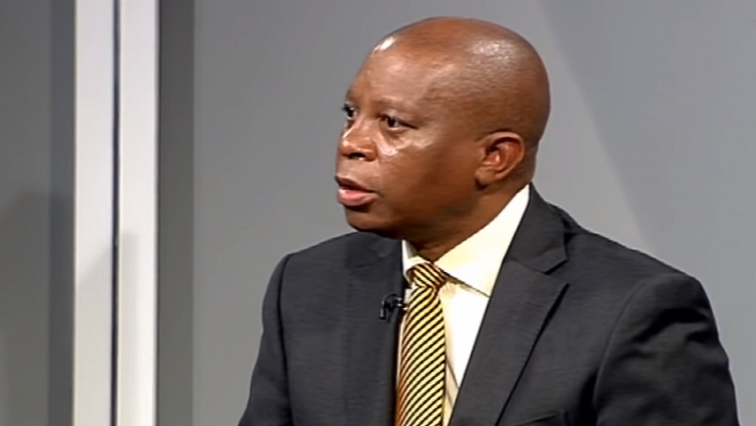In this article, I argue that there is an inevitable cycle of discontent in Malawi that is as hard-wired into the Malawian DNA as is the Malawian passivity in dealing with unacceptable political leadership decisively. Malawian tameness and political docility has shaped a cycle of discontent that can be traced as far back as the old MCP dictatorship days of Kamuzu Banda. Subsequent political leaders, both in government and in opposition, have exploited this deep-rooted disillusionment and lethargy ruthlessly, and only to their advantage. In order to illustrate my argument, I use the political dynamics between 2011 and 2012 as a case in point. It is my submission that just like in a mathematical system that encounters an endless loop, an effective escape from the Cycle is required if any progress is to be made. I conclude that the only escape from this infinite loop is the revolutionary rejection of recycled politics and the ushering onto the scene of a new political dawn that allows patriotism to take precedence over patronage and personal aggrandizement.
Although the two events are apparently unrelated, the ascendancy of Joyce Banda to the presidency of Malawi is arguably the high watermark of the general Malawian discontent that started not long after the 2009 elections and included the demonstrations of 20th July 2011 during which at least 20 people died. The widespread disenchantment regarding late President Mutharika’s DPP administration was caused by what many considered executive arrogance on Mutharika’s part after he and the DPP got a landslide electoral victory in 2009. By the end of 2010, many neutral critics, aided in no small part by elements with a financial or political agenda, began to cite human rights abuses- some real and some imagined and purely fabricated- as a sign that Mutharika was going off track. Soon, as Mutharika paid attention to the criticism and took his eyes off the governing ball, the Malawian economy began to slide resulting in forex scarcity and fuel unavailability. Predictably, Malawians re-acquainted themselves with the discontent that was all too familiar.
In 1964, when Kamuzu Banda succeeded in breaking the “stupid” federation of Rhodesia and Nyasaland, jubilant Malawians hailed a new dawn that was reflected in the smiles on all Malawians faces and the hope of many that Malawian would become masters of their destiny and that opportunities for success and a better life than that which had subsisted under the colonialists would be possible for all. This new hope was soon followed by grave discontent as the new Malawi became not what many had hoped for but simply a gold mine for Kamuzu Banda and his ruling elite. Malawians were to remain repressed and discontented for a good part of 30 years. In 1994, when Bakili Muluzi’s electoral victory signaled yet again the birth of a new Malawi, new dreams and new hopes were raised. They once again turned out to be a cruel mirage as within 3 years, Malawians began to remember with longing the economically stable years of Kamuzu Banda’s leadership. The pattern was again repeated with the ascendency of Mutharika to the presidency in 2009, and is not on a familiar repeat cycle with the presidency of Mutharika’s successor, the current president of Malawi, Joyce Banda.
While I understand and empathize with the demonstrations of 20 July 2011 and the events and circumstances surrounding those demonstrations, I submit that most commentators have wrongly focused on the fact that some people died during those demonstrations. In so doing, they have overlooked the bigger picture, that of the cycle of discontent that is inherent in our politics and now alarmingly recurrent in modern Malawian democratic dispensation. Be that as it may, the July 20 demonstrations further amplified the growing discontent with the Government and the DPP. By December 2011, Malawian discontent with Mutharika was so intense that one could almost touch it. This is the point where I begin the review of the year. Public Disenchantment with Mutharika continued to the point that the Public Affairs Committee convened a meeting that was by and large regarded as a forum to strategize for the change of leadership.
Such was the anger against Mutharika and his government that when he died in April, there was widespread jubilation. The cycle on Discontent had once again produced- albeit inadvertently- another high peak of hope and great anticipation. Malawians were so desperate for this change that it was easy to naively believe the propaganda that was masterfully presented that there had been a plot to block the Vice president from taking over as President. So desperate were Malawians to believe in the new hope brought by the ascendancy of Banda to the presidency that they happily overlooked the fact that the majority of the leadership did not really change at all, and that the only policy decisions that were being made by the new President were for the benefit of western donors and governments and not even Malawians. Malawians were too blinded by the euphoria of change that the could not see that right before their eyes, yes, even before Mutharika was buried, policy decisions were being made that would be the catalysts of yet another season of discontent.
Predictably though, Malawi closes the 2012 chapter in much the same way the country closed 2011- with a lot of discontentment in the air, and with widespread disenchantment and disillusionment with its leader. Critics now getting out of the Change euphoria are suddenly able to recognize the raw deal they have been given. It is business as usual as clueless recycled politicians are doing what they do best, plundering National resources for their private gain at the expense of the nation. Criticism of government is dismissed as an act of desperation to get to the state house. Meanwhile, executive arrogance is once the order of the day as the president refuses to listen to any voices of reason.
The Joyce Banda administration that promised so much has delivered an out of control inflation, with the currency devalued by over 100 percent within 8 months. Cabinet ministers steal beds from hospitals and swear at public meetings, Attorneys general sue and pay themselves, ministers sleep with sixteen year olds and keep their jobs simply by singing praises to the president, First Family members intimidate government officials to get government contracts and there is a whole host of very familiar, corrupt behavior and abuse of office which is going unchecked and unrestricted.
In a nutshell then, a review of 2012 for Malawi is a recurrence of the cycle of discontent that goes from the expectation associated with the coming of a new president to the disillusionment that accompanies the realization that the promise was simply old wine in new wineskins, and nothing more.
It is from this perspective that I return to the July 20 demonstrations with a critical eye. It is my submission that to get out of the rut that has imprisoned our country in a cycle of discontent, the 20th of July demonstrations should not be seen simply as an event where 20 people died apparently fighting the Bingu administration or fighting for academic freedom, or whatever it was that the demonstrators felt in their hearts that they were demonstrating against. At its heart, the demonstration of 20th July 2011 are, in my submission, the precursor to the kind of revolutionary solution that will help the country escape from the infinite loop of discontent that has engulfed it.
In the final analysis, any political demonstrations in Malawi will be of little value if they are not accompanied by a genuine desire to draw a new line on the political scene that bars the old ways and says “No” to recycled politicians; for as long as Malawians continue to recycle politicians in the manner it has done in the past 18 years, the cycle of discontent will not be broken. It is only new political thought that put the country first that will set free the chains that hold Malawi in prisons of poverty and limited economic growth.
Malawian problems will not be solved by political thinking that lets donor satisfaction take precedence over Malawian welfare. Solutions to the Malawian predicament will not be found in the flip-flopping of politicians from one party to another based simply on offers of cabinet positions. Answers to the Malawian dilemma will not be found in creating imaginary hunger and raiding the country’s strategic grain reserves and distributing the grain therein to the people. Parties formed emotionally as a result of personality clashes, leadership arguments or political infighting will not solve Malawian problems.
In order to break the inevitable cycle of discontent in which we find ourselves, Malawi needs politics based on ideology, and fiscal solutions based on an understanding of global economics, with a necessary wariness regarding the intentions of foreign institutions and international influences. The Malawian predicament, like that of many African nations will solved by Africans; Malawians who are prepared to stand up against western interference and ready to use their knowledge and hard work to formulate uniquely Malawian solutions.
In order to usher in the new generation of thinkers who will transform the country and user in real hope and genuine possibilities, however, a total political revolution must first take place.





No comments! Be the first commenter?